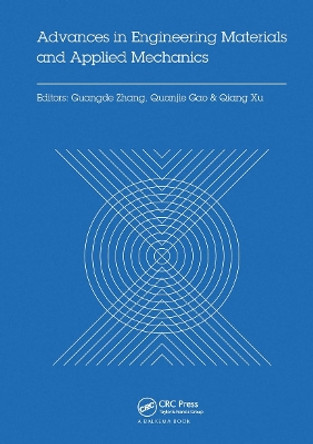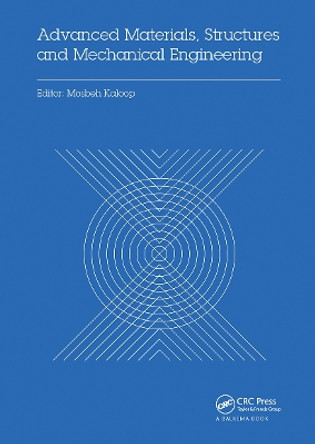Description
The formability features of sheets made of the alloy Al 8011 are examined experimentally and the results are compared with the numerical ones in this research. Through an axisymmetric finite element simulation of the Erichsen cupping test, formability characteristics were evaluated. The Erichsen cupping test was used to exam ine the effects of several factors, including friction at the punch-sheet contact and sheet thickness. The nonlinear finite element method is used to calculate the dome height, stress, and strain values for the aluminum sheet, and the results are then compared to the numerical ones. The findings demonstrated that the Al 8011 alloy's form ability greatly rises with increasing sheet thickness. The formability is significantly impacted by the lubricant. The application of the finite element technique to forecast the formability of Al 8011 alloy.
About the Author
N. V. R. Naidu
Chief Editor Dr. N. V. R. Naidu is currently serving as Principal at M S Ramaiah Institute of Technology, Bangalore, India. With over 42 years of experience in academia and Research. Dr. Naidu academic journey includes B.Tech. in Mechanical Engineering, M.Tech and Ph.D. in Industrial Engineering from Sri Venkateshwara University. He has received Dr. J Mahajan Award (2008-09) from the Indian Institution of Industrial Engineering. Throughout his illustrious career, he has held pivotal roles such as Dean Faculty of Engineering and Executive council Member at Visvesvaraya Technological University, reflecting his dedication to the advancement of academic excellence. He is serving on various academic boards and contributing his expertise to prestigious institutions in the field of Engineering. Dr. Naidu's expertise extends to research, evident in his 140+ published papers in prestigious national and international journals and conferences. He contributes as a reviewer for reputable journals and has chaired sessions at various conferences. Dr. Naidu has authored nine textbooks spanning Management, Total Quality Management, and Operations Research. Dr. Naidu has significantly impacted academic research, guid ing seven doctoral candidates in areas like robust design and supply chain networks and he is adjudica tor for PhD theses across India. His international engagements in countries like the USA, Japan, and Canada have enhanced industry-institution interactions. He has executed numerous funded programs and projects, advancing academia and industry collaboration.
G. M. Madhu
Editor Dr. G. M. Madhu is currently working as a Professor at the Department of Chemical Engineering and serves as the IQAC Coordinator at M S Ramaiah Institute of Technology, Bangalore, India. He holds degrees in Chemical Engineering at the undergraduate, postgraduate, and doctoral levels. With twenty three years of experience in both research and teaching, his expertise lies in nanomaterial synthesis and applications, water purification technologies, and nano composites. Dr. Madhu has contributed signifi cantly to academia, having authored 105 papers in peer-reviewed national and international journals, as well as presenting 65 papers at national and international conferences. His research endeavours have been supported by funded projects from government and non-governmental agencies. Under his mentorship, ten students have successfully completed their PhDs, while two students have attained M.Sc. Engineering degrees. Currently, Dr. Madhu is supervising five students pursuing their PhDs. He had delivered numerous invited talks at both national and international conferences. Dr. Madhu is an esteemed life member of IIChE, IEI, InDA, and IAENG.
Nagaraju Kottam
Co-editor Dr. Nagaraju Kottam is currently working as an Associate Professor in the Department of Chemistry, Ramaiah Institute of Technology, Bengaluru. He has obtained his PhD in Physical Chemistry from Central College, Bangalore University. His research interests include the design and development of advanced nanomaterials and their composites for wastewater treatment, hydrogen generation, electro chemical, and biosensors applications. He has to his credit more than 75 research publications in ref ereed international journals, 06 Patents, 03 book chapters. He has guided 09 Ph.D's for their doctoral degrees and another 02 are on-going in which one is DST-Inspire fellow. He has mentored more than 15 UG/PG projects and the majority have received best project awards. Recently, received as the best innovative project award of the year 2024 and 2020 from KSTA and KSCST, Bengaluru. He earned some government/institutional-funded projects and received several prestigious awards including the "Award of Excellence in Teaching" from MSRIT for the year 2018-19 for his contribution to research and teaching. There is on-going institute level DST-FIST program. He had reviewed more than hun dred articles in international journals and was awarded the Outstanding Reviewer award from an Elsevier journal and also served as guest editor for a few journals. Dr. Nagaraju was a recipient of the INSA-IAS summer research fellowship in 2014. He was also nominated as an expert member for evaluating Switzerland's government-funded project in 2020.
G. N. Anil Kumar
Co-editor Dr. G. N. Anil Kumar is working as Assistant Professor in the Department of Physics, Ramaiah Institute of Technology. He has obtained his PhD in chemical crystallography from Bangalore University in 2012. His Research interests include Single crystal and Powder x-ray diffraction studies on organic & inorganic materials, Co-crystal design and ab-initio studies of solids. He has published 50 research articles in international peer reviewed journals and completed an external funded project
Book Information
ISBN 9781032900469
Author NVR Naidu
Format Paperback
Page Count 396
Imprint CRC Press
Publisher Taylor & Francis Ltd




